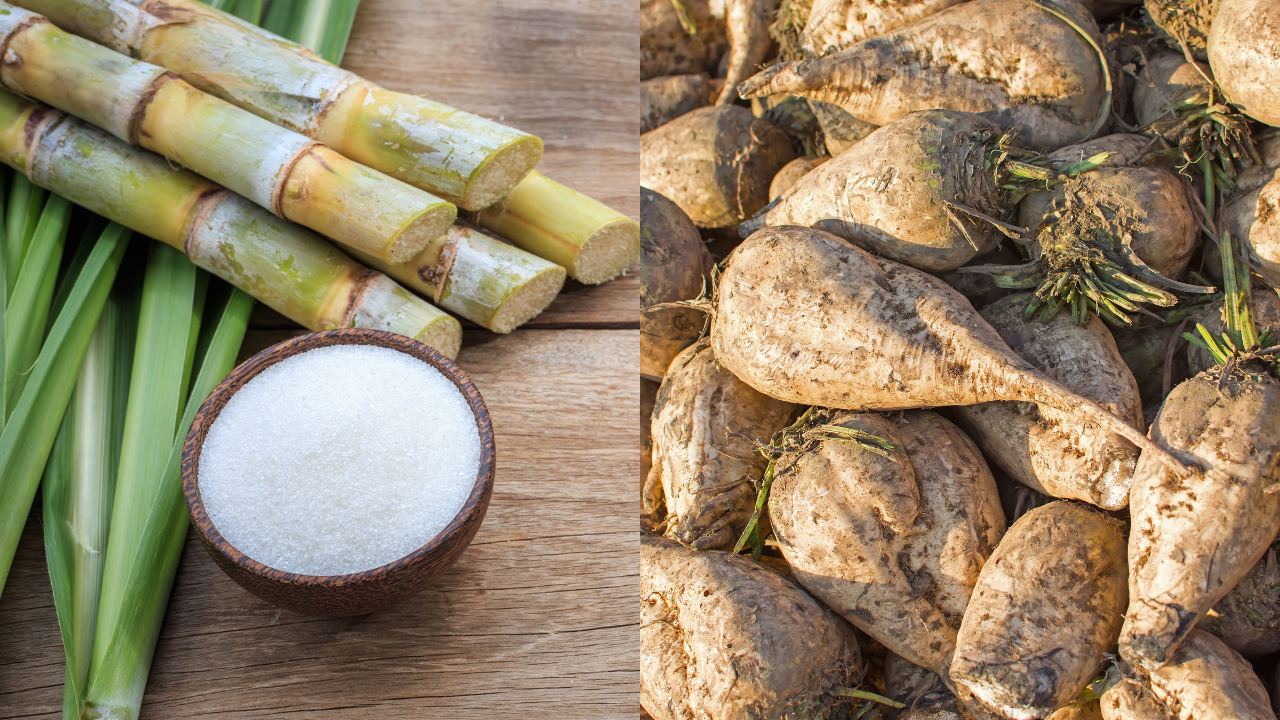People researching beet sugar vs cane sugar often want to know which dissolves better in beverages.
People researching beet sugar vs cane sugar often want to know which dissolves better in beverages.
Blog Article
A Detailed Take A Look At the Conveniences and Uses of Beet Sugar Vs Cane Sugar for Sweetening Options
In the realm of sweetening, both beet sugar and cane sugar offer unique advantages and culinary functions, albeit with comparable dietary accounts. While beet sugar boasts a neutral flavor suitable for numerous dishes, cane sugar enriches recipes with subtle caramel touches.
Origins and Processing Techniques of Beet Sugar and Cane Sugar
Beet sugar and cane sugar, two predominant sugar, stem from extremely unique plants and go through different processing approaches. Beet sugar is removed from the sugar beet, an origin vegetable, mainly grown in cooler environments.
Conversely, cane sugar originates from the sugarcane plant, an exotic lawn. Its processing starts with harvesting the cane, crushing it to get the juice, and after that steaming this liquid to create sugar crystals. The continuing to be molasses-rich liquid can be re-boiled multiple times to generate differing grades of sugar. This process, although rather comparable in its goal, differs significantly in regards to the ecological conditions required for farming and the preliminary steps in extracting sugar. beet sugar vs cane sugar. Each method shows adaptations to the respective plant's natural habitats and buildings.
Nutritional Contrast: Beet Sugar Versus Cane Sugar

When comparing the dietary web content of beet sugar and cane sugar, it becomes evident that both types give a comparable energy value. Each delivers concerning 4 calories per gram, largely as sucrose, which is a straightforward carbohydrate. This resemblance reaches their absence of essential nutrients; neither kind of sugar includes significant amounts of vitamins or minerals. Both beet and cane sugar are 99.9% pure sucrose, making them virtually the same in terms of calorie material and nutritional account.
However, minor distinctions may emerge from the very little micronutrient that stay after processing, though these are as well small to impact general health and wellness. For instance, cane sugar can keep traces of molasses, depending upon the degree of refining, which might add small amounts of calcium, iron, and potassium. Beet sugar, on the other hand, normally undergoes a process that eliminates these trace aspects more completely, leading to an even purer type of sucrose.
Culinary Utilizes and Taste Profiles
Despite their dietary similarities, beet sugar and cane sugar deviate significantly in their culinary applications and taste nuances. Beet sugar, acquired from sugar beets, usually has a very neutral preference, making it a favored selection in baking where it seamlessly incorporates without modifying the flavor account of other ingredients.
Cooks and home cooks alike pick sugars based on these features. While both sugars work similarly in regards to sweetness and physical residential check this or commercial properties, the mild flavor distinction can affect the result of a dish dramatically, directing the selection between beet and cane sugar based upon the desired end result in cooking creations.
Wellness Implications of Consuming Beet and Cane Sugars
Although beet sugar and cane sugar are often utilized mutually in food preparation and baking, their health and wellness ramifications can differ discreetly due to their distinct processing techniques. Both sugars provide about the very same quantity of calories and carbs per teaspoon, essentially using similar energy contributions with no intrinsic dietary advantages. Nevertheless, the refining process for each her explanation sugar can modify the visibility of trace minerals and substances, although these variants are generally very little and not considerable adequate to influence one's health meaningfully.
The main health and wellness worry about both kinds of sugar refer to their contribution to excessive calorie intake, possibly causing weight gain, and involved conditions like type 2 diabetes and cardiovascular disease when eaten in huge amounts. Consequently, no matter the source, small amounts is type in taking in beet or cane sugars. Health specialists typically recommend restricting sugarcoated in any kind of form to maintain optimal health outcomes.
Ecological Influence and Sustainability of Sugar Manufacturing

On the other hand, sugar beet handling has a tendency to produce big quantities of my latest blog post pulp waste, which can be repurposed as animal feed or transformed right into bioenergy, consequently minimizing some environmental influences (beet sugar vs cane sugar). Eventually, the sustainability of sugar production depends upon taking on even more eco-friendly farming strategies and waste monitoring practices to decrease the ecological impact of both sugar kinds

Conclusion
To conclude, both beet and cane sugars use useful sweetening alternatives, each with distinctive benefits and downsides. While they are nutritionally comparable, their farming impacts and flavor profiles vary dramatically. Beet sugar is noteworthy for its sustainability and neutral taste, whereas cane sugar is valued for its rich taste. Customers need to consider these variables, together with the ecological effects of sugar manufacturing, to make educated selections concerning sugar intake that align with culinary requirements and moral worths.
Report this page